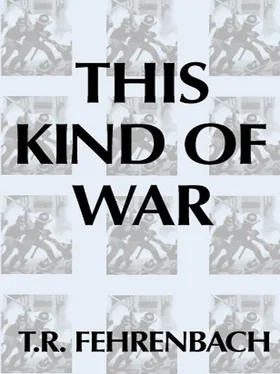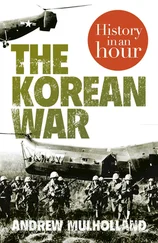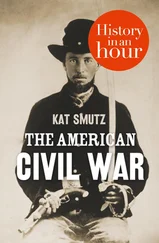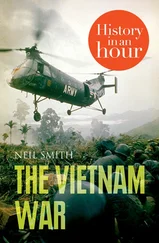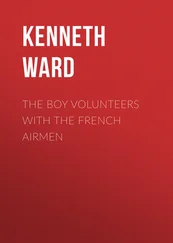Exhausted, Joe Clemons told the S-2; "Take this message back. Tell them the crisis here is not appreciated by Battalion or Regiment. I have very few men; all are exhausted. Russell has only fifty-five men left. When they go out, it is not reasonable that we can hold the hill."
The S-2 went back. An hour later, while the crisis atop Pork Chop got no better, Battalion acknowledged receipt of Clemons' message—receipt, nothing more.
While men were being killed and wounded all about, elements of the battle for Pork Chop were almost ludicrous. Fifteen minutes before three, daring artillery fire, a Public Information Officer dashed into Clemons' bunker. The PIO, Lieutenant Barrows, had come up from Division with two staff photographers to write the story and get pictures of what was supposed to have been a glorious American action.
Clemons said, simply: "Forget the pictures. I want you to carry a message to Battalion." He wrote, only, We must have help or we can't hold the hill.
Barrows, seeing the death and destruction on Pork Chop, dashed back at once.
Again Battalion acknowledged, and nothing more.
But the battalion C.O., Colonel Davis, and Colonel Kern at 31st Regiment, this time got the message. The trouble had been simple—Clemons had sent a number of desperate messages to the rear, but he had never stated his losses.
Higher HQ had continued to believe he was fighting with a tired but still strong rifle company. With no loss figures, Division had been serenely confident of Clemons' ability to hold.
Now the balloon went up.
Still, Joe Clemons received no answer.
The answer was simple, and yet complex. A great many men had been thrown down the drain already on Pork Chop, relatively worthless, scabrous piece of earth, whose very presence in Chinese territory was a continuing affront to them. Intrinsically, Pork Chop was not worth the life of a single human being, American or ROK. And the fight was rapidly becoming another Bloody Ridge or Triangle Hill, where Americans had gone into the meat grinder at the rate of a battalion a day.
Neither Battalion nor Regiment could make the decision to throw more troops onto Pork Chop. They bucked it up to Division.
Division, which had been stopped by Max Taylor from pouring more men onto Old Baldy, was not about to accept the buck. Division recognized that if Pork Chop were let go, the CCF, encouraged, would strike for the next hill, and the next. But it could not make the decision to accept the losses that might be forthcoming. The 7th Division HQ ordered that Clemons should hold, but until it got instruction from higher up, he was to be given no help. Division HQ did not want to throw good money after bad, though they could hardly put it in such terms.
Major General Trudeau talked to I Corps by phone, then took a helicopter up close to the front, to wait in Colonel Davis' CP.
I Corps got in touch with Eighth Army. Eighth Army decided it had to talk with FECOM in Tokyo.
Pork Chop Hill was a battle of wills, and the U.N. was not winning.
At 1500, receiving no new orders, and having lost half his command in a few hours, Lieutenant Russell wished his brother-in-law luck and pulled his company back down the hill. Joe Clemons now had a total of twenty-five men left to him, of all who had climbed to Pork Chop since morning. He made a small island of defense on one of Pork Chop's knobs, and there he and his men waited, for whatever might come.
He and his men had been without water for many hours; their weapons were dirty and jammed; all were in almost trancelike exhaustion. Yet, under Clemons' command, they were still a disciplined body, and still had the will to remain. Small-arms fire plucked at them all afternoon, and the Chinese artillery sought them out. Only fourteen of these men would survive.
At about 1700, Joe Clemons, after fighting off a couple of snipers with a rifle, got on the radio to Battalion. He said, "… about twenty men here who are still unhit. They are completely spent. There is no fight left in this company. If we can't be relieved, we should be withdrawn."
Trudeau was in Battalion CP. Immediately he got into his copter, and flew to his phones at Division HQ. He talked to I Corps Commander Major General! Bruce C. Clark. He wanted one promise: that if he threw more troops into the Pork Chop affray, the hill would not be given up at a later time.
It was at this time that the United States Army began to win its battle of wills. It might seem a nightmarish children's game, with ghastly stakes—but the United States Army was going to have to show the CCF who was King on the Hill, if it wanted success at Panmunjom.
Lieutenant Denton, of Love Company, was ordered to attack onto Pork Chop. He brought his men into Clemons' area when Clemons had just sixteen men left. And Denton, and the remnants of Love, would have as bad a time as Clemons, before the night was out.
Just before 1800, the 2/17 was attached to Colonel Kern's 31st Infantry, giving him two fresh rifle companies. Withholding E, 17th, he ordered King's Fox to assault Pork Chop and relieve Clemons. Sometime after 2100, Fox Company mounted the back slopes, and Clemons' survivors started to the rear.
Under the artillery pounding, and the desperate Chinese attempts to batter down all resistance on the hill, Fox Company was not enough. Easy, 17th Infantry, had to be committed, too.
Everywhere else along the line the front was cool. At Panmunjom prisoners were being exchanged. But around Pork Chop the life of a rifle company was measured in hours.
At dawn, Able Company, 17th Infantry, was committed.
In retrospect, both Easy and Able should have been committed earlier; the haunting fear of committing too many men, of taking too many casualties, which had begun with the terrible civilian pressure after Heartbreak, had resulted in piecemeal commitment and, ironically, more losses than were probably necessary.
For Able of the 17th, fighting beside the remnants of Fox and Easy all day of 8 April, against company after company of reinforcing Chinese, finally turned the tide.
Love, Fox, and Easy, relieving Clemons' King on the hill, each took almost as many casualties. But when the CCF finally understood that they could not have the hill—would not get it, even if they killed a thousand Americans, or fought it out all summer along this line—their assault ceased as quickly as it had begun.
After sunset 18 April, the sound of guns ceased, and the stars came out once more through the fading smoke.
The United States Army had expended more than 130,000 rounds of artillery ammunition within twenty-four hours, and had expended several hundred men. It was King on the Hill.
Sometimes the cost of games is high.
| Go to Table of Contents |
39
Cease-fire
It was very easy to start a war in Korea. It was not so easy to stop it .
— From the Russian of N. S. Khrushchev, speech before the Bulgarian Party leadership.
LATE IN THE 1952 presidential campaign, Dwight D. Eisenhower, the Republican candidate, said, "If elected, I will go to Korea." The effectiveness of this pledge, though it had little of promise in it, was adjudged by the agony of Eisenhower's opposition. While the pledge was immediately attacked as cheap politics, it undoubtedly swayed the votes of thousands of families with men in Korea. And it was a simple acknowledgment of a fact the incumbent Administration wished to avoid—that the Korean War was at the heart of the campaign and that its continuance under present terms was becoming politically impossible.
It was not the entrance of the United States into the war that came back now to haunt Harry Truman and his picked successor, Stevenson, but the continuing military and diplomatic standoff since 1951. The 2,500 American casualties per month the stalemate was costing were insignificant, except on the conscience of the American people.
Читать дальше
